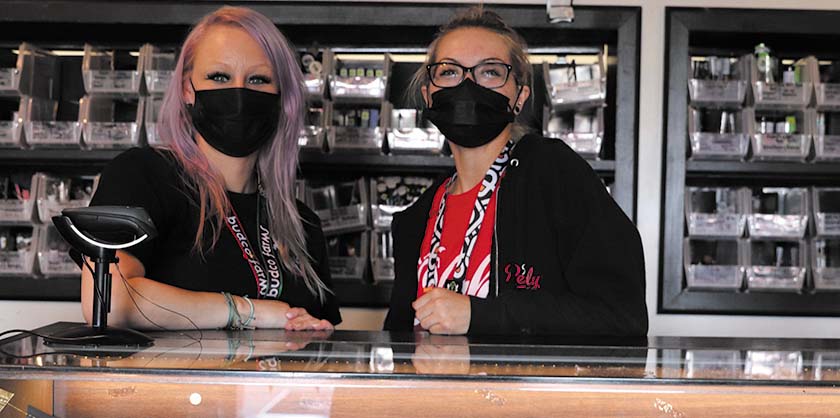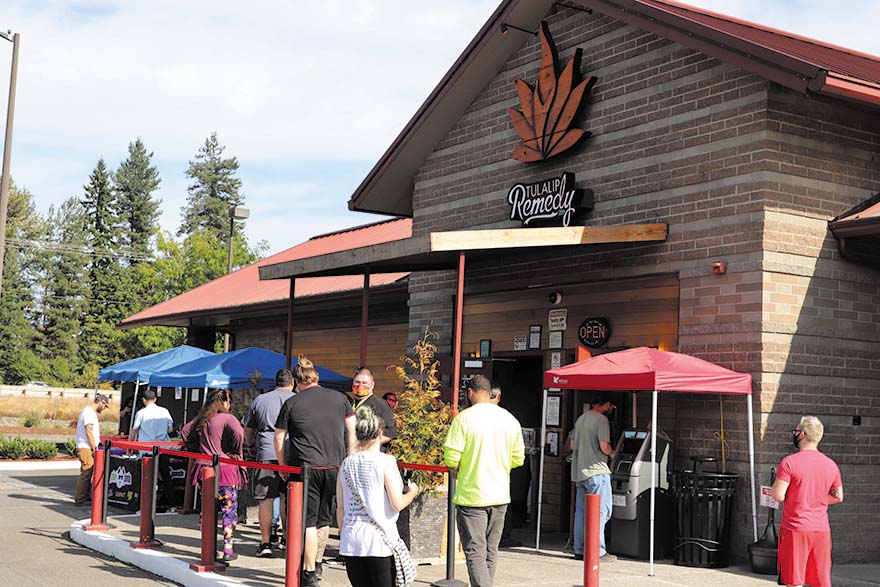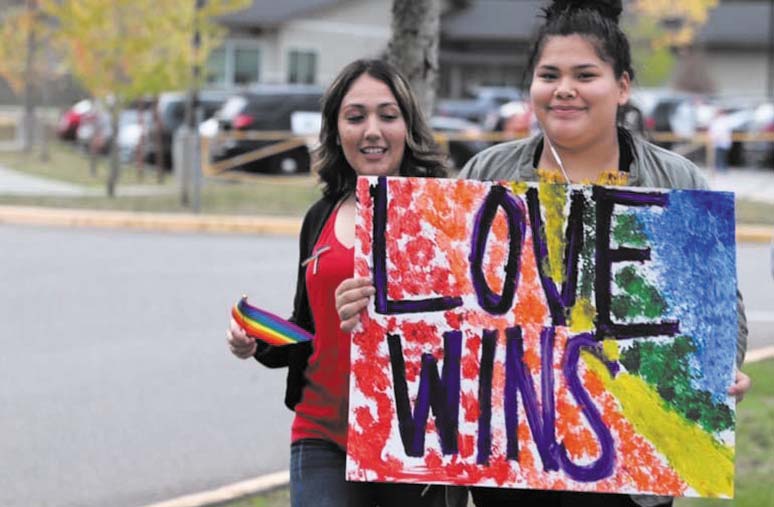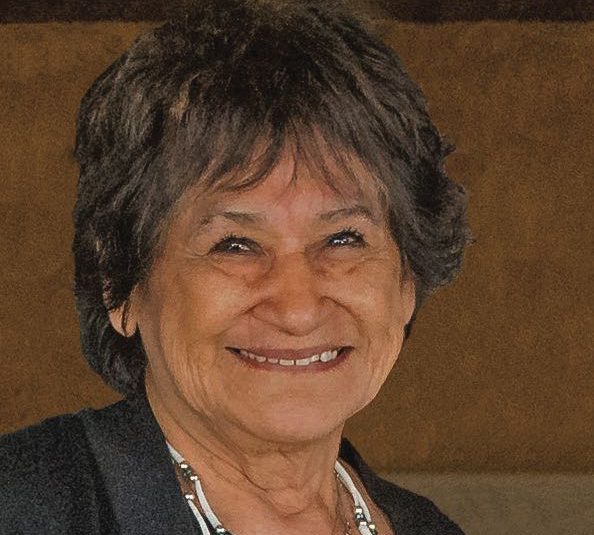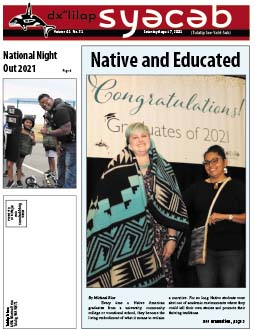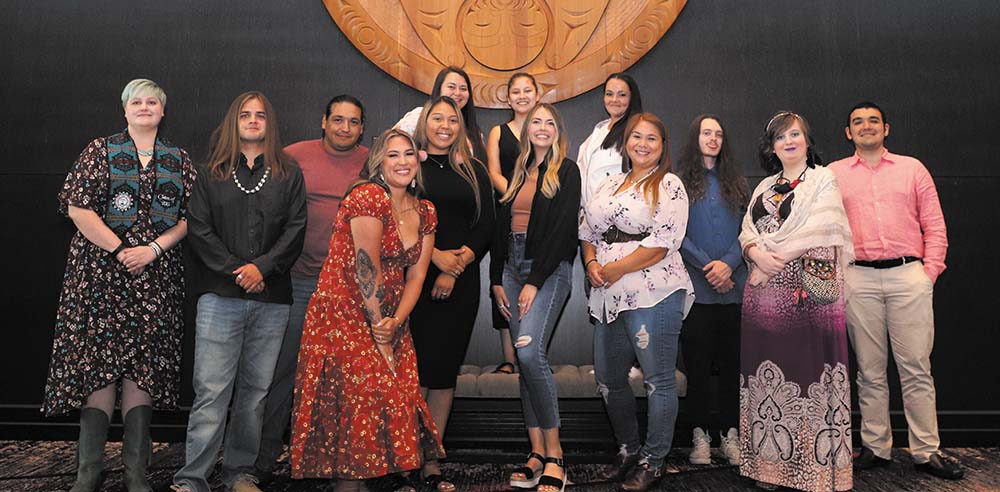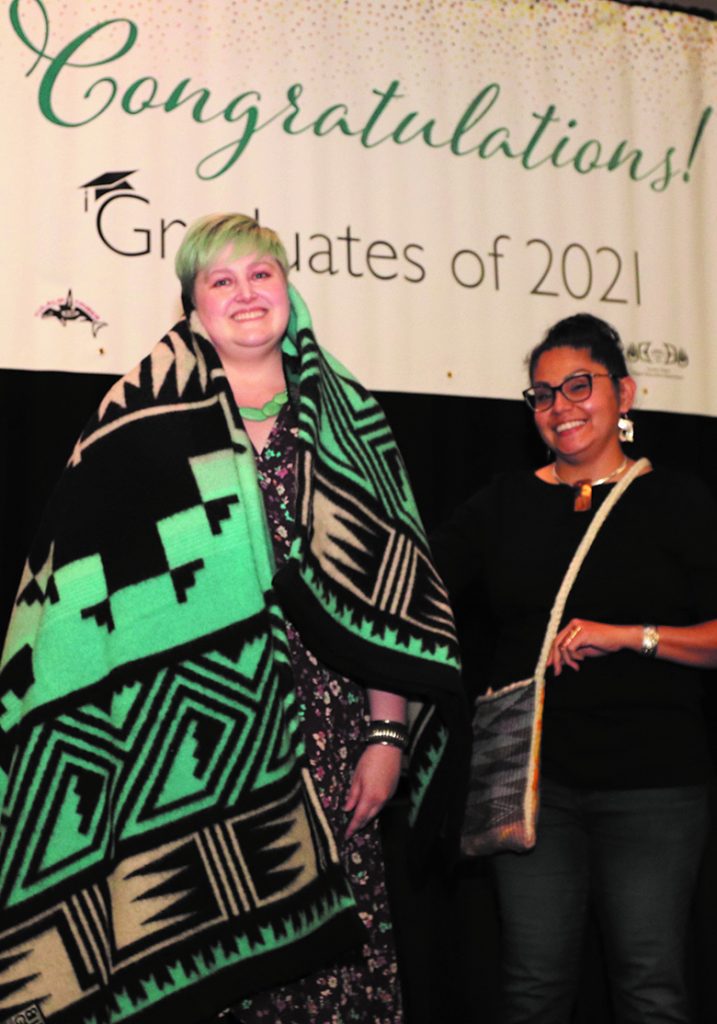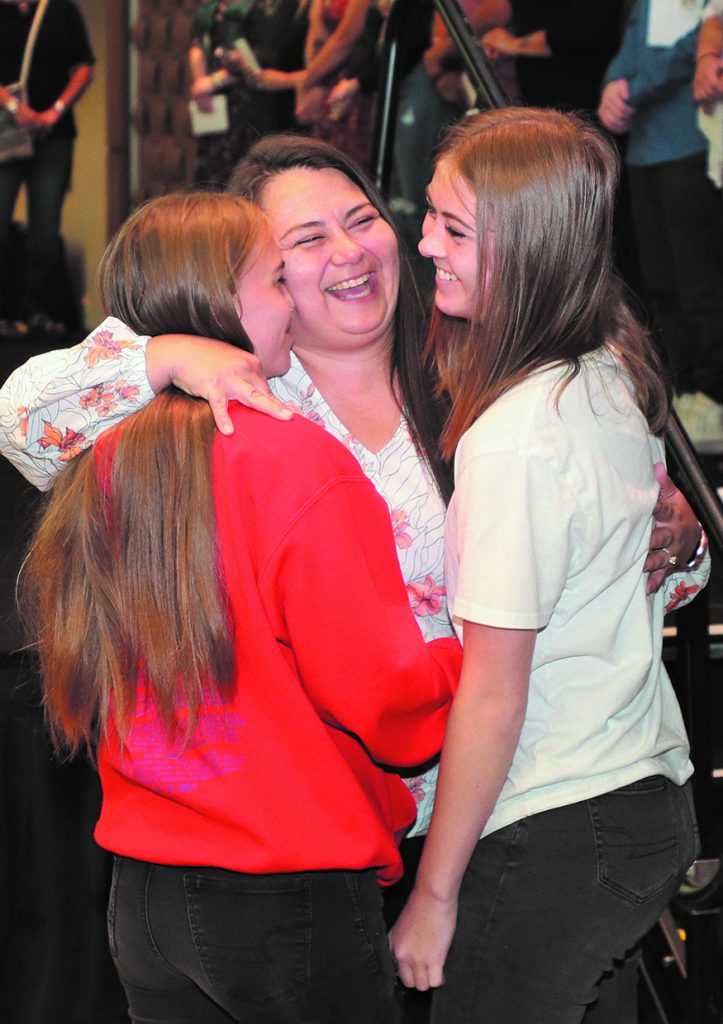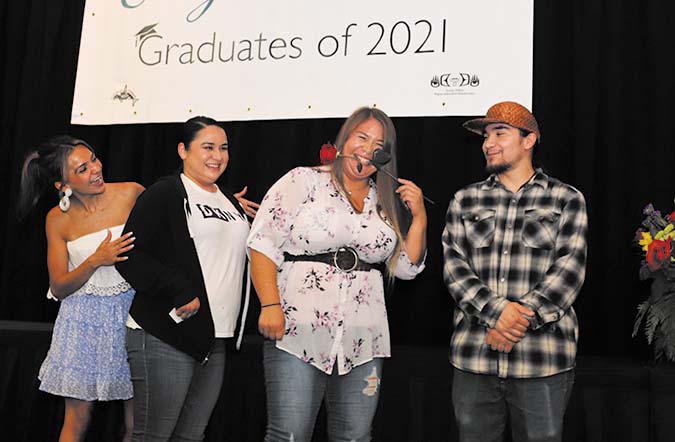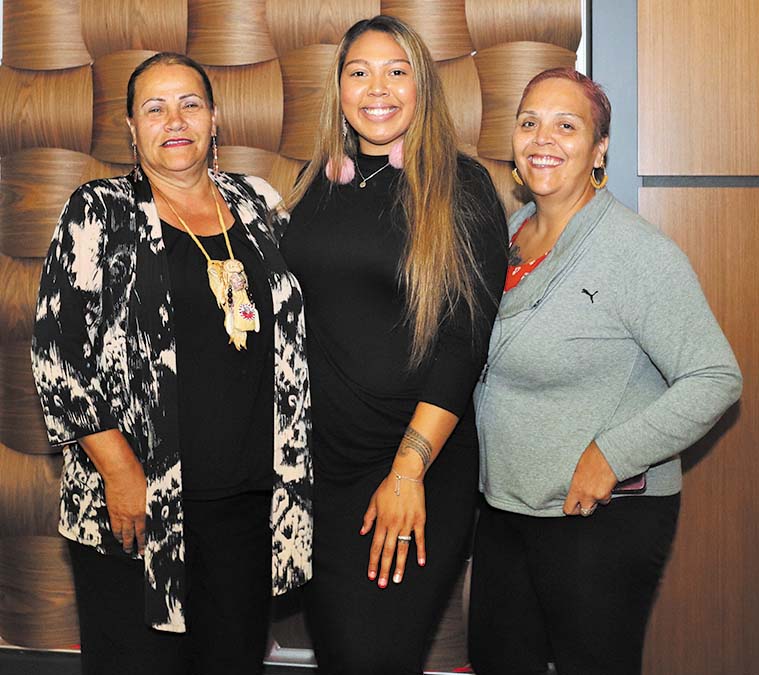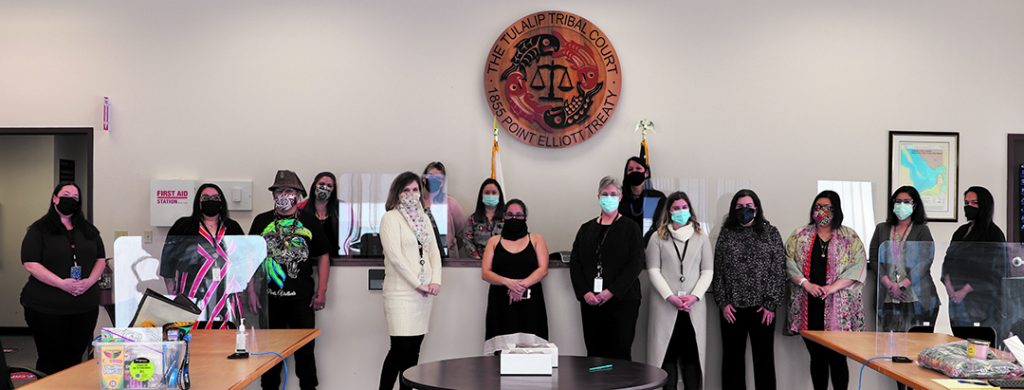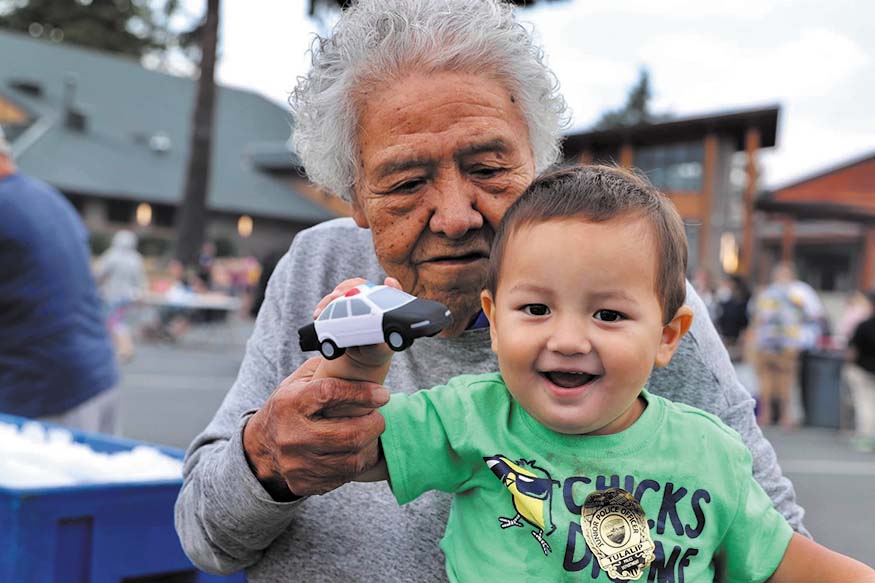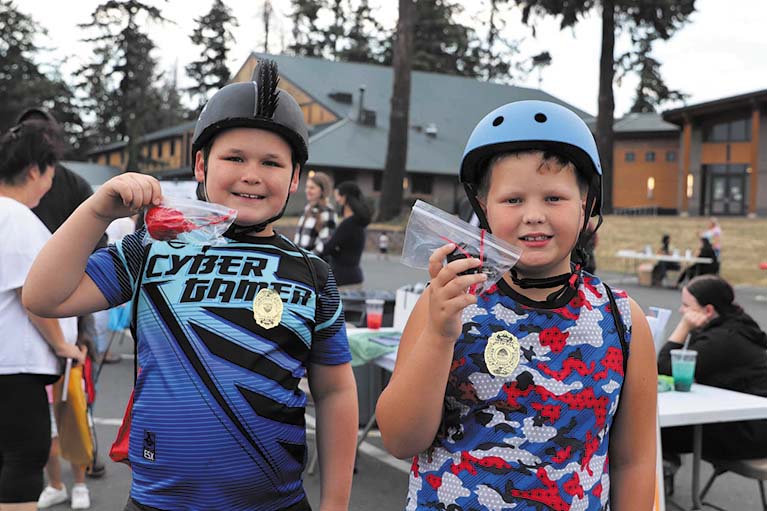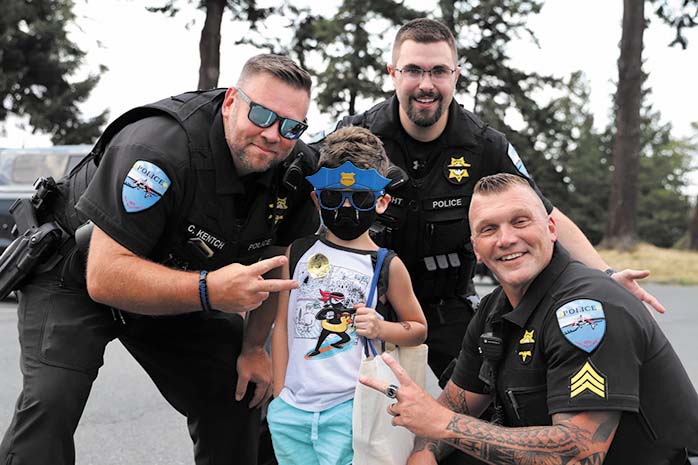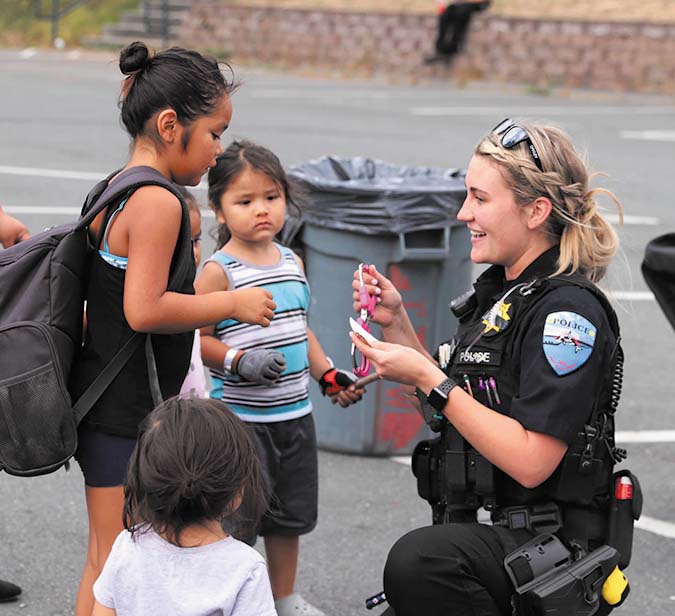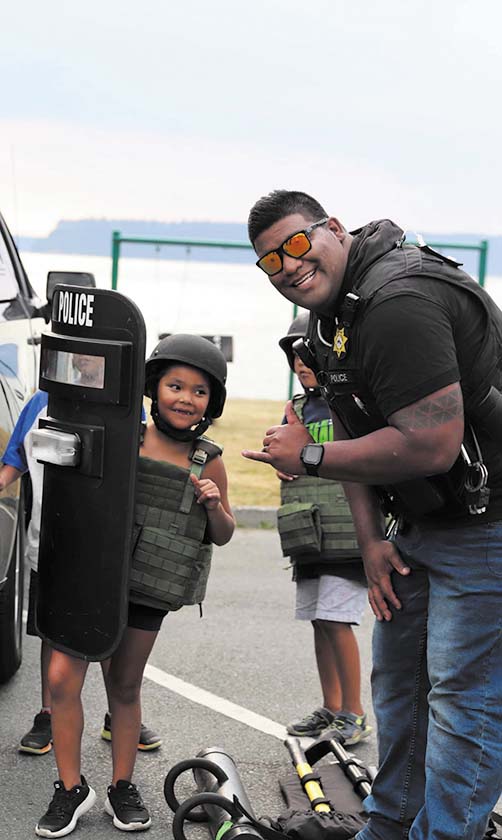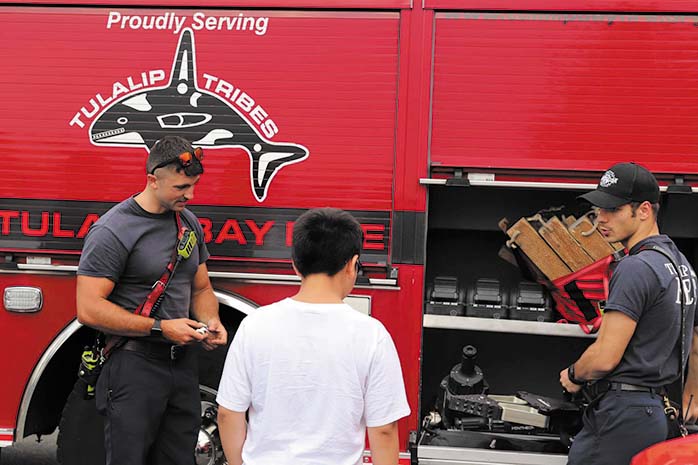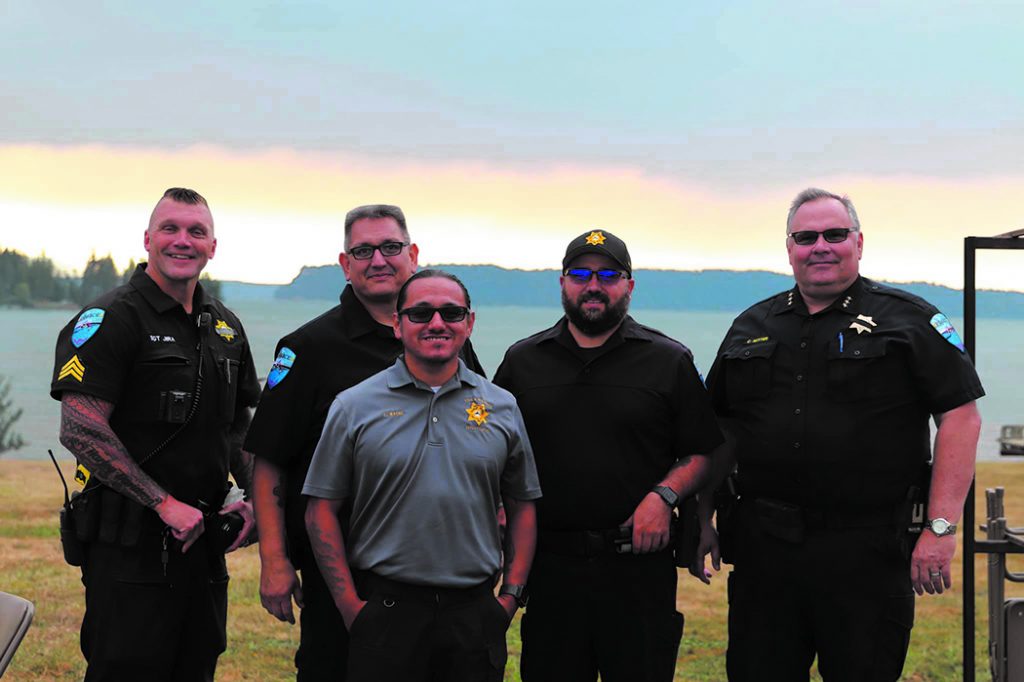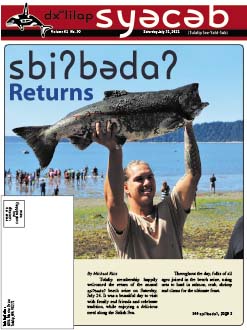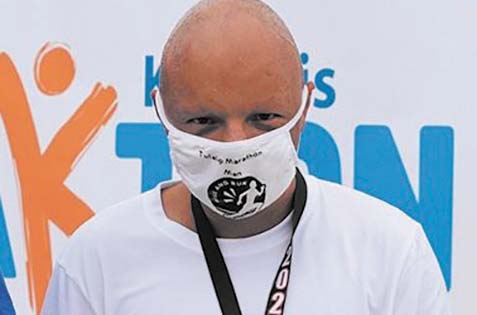
By Kalvin Valdillez, Tulalip News
Tribal member, Tyler Fryberg is an inspiring young man. Whether participating in the Special Olympics, raising profits for Leah’s Dream Foundation by participating in the Miracle Mile, or simply running about the reservation and crushing his own personal goals, Tyler’s heart is always on the right track and he is constantly making strides to improve each and every day. Tyler uses his passion for running not only as a means to stay in peak-physical form, but to also raise awareness and bring attention to issues that matter to him the most.
Tyler has been running for the majority of his life, picking up the sport in junior high and continuing all the way to present day, taking time off only to recover from injuries, and then he was right back at it again. Known throughout the community as the Tulalip Marathon Man, Tyler has medaled nearly every time he was invited to compete in the Washington State Special Olympics, and also held the honor of carrying the Torch of Hope for 18 miles in 2012.
The last time we spoke with Tyler was after he logged his 1,000th mile in 2020 for Leah’s Dream Foundation’s Miracle Mile Challenge. After completing that challenge and helping raise awareness and funds for the local non-profit organization, Tyler kept on running because, as the saying goes, the marathon continues. Last year, the Marathon Man created new social media pages so his fans and supporters can stay up-to-date on his running journey as he continues to collect miles and medals left and right. In order to properly recognize all the hard work and effort that he has put in over the past year, Tulalip News took a moment to catch up with Tyler Fryberg, the Tulalip Marathon Man.
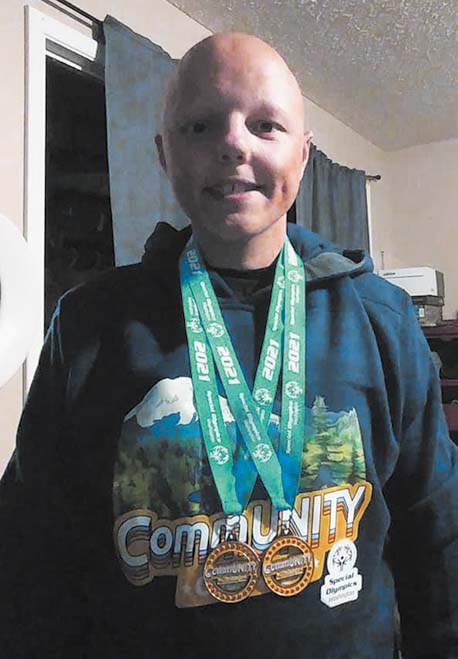
Last time we spoke, you just completed the Miracle Mile for Leah’s Dream. What have you been up to since then? Have you taken on any new challenges or participated in any new running events?
I just completed my second 1,000 miles ran-in-one-year back in July 2021. During COVID I’ve been able to run a race, and that was a community race in Arlington for St. Patrick’s Day. It was a 5k road-race and I won first place with a time of twenty-three minutes. As of right now, I am training for my very first marathon. For people who don’t know, it is 26.2 miles. The race I will be doing will be virtual due to COVID, but it’s called the virtual New York marathon.
What fuels your passion for running and what do you love most about it?
What I love most about running is that I just love being outdoors. But, I also use it for mental health also. If I am upset or stressed, I can always go for a run to calm me down. If I set a goal for some event, it makes me keep going. Also knowing that I have people in my life who support me with my running like the Tulalip Tribes, community, and my family and friends.
What does your running schedule look like – how often do you run a week and do you prefer early morning runs are afternoon runs?
I am running six days a week, and two days of strength training. I like running in the morning the best because I can go outside with no distractions and I feel my best in the morning.
How many miles have you ran so far this year? How many more do you hope to run before the year ends?
As of right now, I am at 1,111 miles and the goal I hope to get to is as close to 2,000 miles as possible.
How do you track your progress and miles?
I track my miles and runs with my favorite running app called Strava. I also use the 1,000 mile log app to count miles that I have already done.
Do you have any new gear that you love, and are there any must-have accessories that you need when running?
The gear I have is the AONIJIE hydration vest, a Garmin watch and sunglasses. I make sure to bring the AONIJIE hydration vest and gel packets. Also my cell phone to count miles.
Do you listen to music while running – and if so what are some of your favorite tunes to run to?
Yes, I listen to music when I run. I listen to anything from Native American powwow or flute music to hip hop, pop and country. It all depends on my mood for the run.
Your journey is very exciting and inspiring! Do you have any advice for new runners and those who want to start but don’t know where to begin?
For new runners, set a goal because then you will have something to motivate you to run. Also, never set your goals too high or you will not achieve them.
Why do you believe getting good exercise like running is important?
Getting good exercise will help with people who are diabetic and with a lot of other health problems that Americans face every day. It also gives you the Vitamin D that you need. If you just walk thirty minutes a day, that is still great on your health. With running, there are so many great health benefits as well, like it helps with weight loss and [controlling] blood sugar and so many others.
What’s next for the Tulalip Marathon Man? Any personal goals you wish to accomplish or any exciting news you would like to share?
Running the virtual New York marathon (26.2 miles) on October 23rd. A goal I have is to run a 10k race (6.2 miles) under 50 mins.
For the Special Olympics, I took a training class to become a health messenger and athlete leader. And, I just got first in the 2021 Special Olympics virtual community challenge competition in 2020. I also finished third in the North America move challenge, and now on September 13, 2021, I get to represent Washington State in the 2021 North America move challenge as a health messenger.
How can people follow you throughout your running journey?
People can follow me through Facebook – Tyler Fryberg (Tulalip Marathon Man). Also, I have Instagram @TulalipMarathonMan. And, I make YouTube videos, for health and fitness, called Tulalip Marathon Man.
